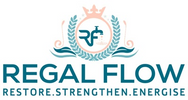
How Long Does It Take a Water Softener to Clear Pipes?
You have finally installed a water softener, a great move. No more battling chalky limescale or scrubbing white marks off your taps. But now the big question is how long it takes to actually clear the existing gunk inside your pipes. The timeline for 'descaling' your home depends on your system's age and the level of buildup already present. We are breaking down the realistic expectations for your plumbing within our The Benefits of Soft Water: How a Water Softener Protects Your Home guide, so you can track the progress without the fluff.
Understanding Water Softeners and Existing Pipe Build-up
What Causes Build-up in Pipes? (Scale)
Imagine your pipes like arteries. Just as cholesterol clogs blood flow, hard water clogs your plumbing with mineral scale. This “scale” is mainly made up of calcium and magnesium is harmless to your health, but a nightmare for your home. As hard water passes through, these minerals cling to the insides of your pipes. Over time, they thicken, restrict flow, and make your appliances work twice as hard. Boilers, kettles, and washing machines often take the biggest hit, especially in high-scale regions like the South East or Midlands.
How Water Softeners Prevent New Build-up
Water softeners act like a bouncer at the door. They swap the hard minerals for sodium ions before the water even enters your pipes. This stops new limescale from forming and protects your plumbing from further damage. The change is instant but the results aren’t. Clearing what’s already in your pipes takes time. Think of it more like reversing years of wear and tear, not waving a magic wand.
The Timeline for Clearing Existing Pipe Build-up
Softening as a Gradual Process
Softened water starts flowing the moment your system’s installed. From day one, it stops new scale from building up. But what’s already there? That’s going to take a bit longer. You’ll likely notice some small wins early on. Water pressure might improve. Your showerhead might stop clogging. But don’t expect fully descaled pipes in a week. Most homes see gradual results over 1 to 3 months, depending on how bad things were to begin with.
Factors Influencing the Timeline
Severity of Existing Scale
If your home’s been battling hard water for years, the pipes might be coated in a thick layer of limescale. It is going to take time and lots of soft water, to slowly dissolve it. In some cases, complete removal isn’t possible without extra help.
Water Flow Rate
The more you use your taps, the faster softened water can flush through your system. Households with higher water use (like big families or homes with power showers) often see results quicker than quieter homes.
Water Chemistry
Not all hard water is created equal. The exact mineral content in your area, especially if it includes iron or manganese can affect how fast build-up breaks down. Softer regions like the North West might see quicker changes than hard-hit areas like East Anglia.
What to Expect: Gradual Improvement
-
Week 1–2: Subtle improvements—stronger water pressure, better shower flow
-
Week 3–6: Less visible scaling on taps and tiles
-
Month 2–3: A noticeable difference in plumbing efficiency and system balance
Keep an eye on your salt levels and regeneration cycles during this time. A well-maintained system always performs better in the long run.
Will a Water Softener Completely Clear Pipes?
Limitations of Softening for Existing Heavy Build-up
Here’s the honest truth: soft water can’t perform miracles. If your pipes are already in rough shape with years of scale build-up, it may not clear everything. You’ll see improvements but maybe not perfection. Some of that stubborn scale can cling on no matter how soft your water is.
When Mechanical or Chemical Cleaning Might Be Necessary
If things still seem sluggish after a few months, it might be time to call in a pro. Mechanical descaling tools or specialist chemicals can be used to flush or dissolve hardened deposits. This is often needed in older homes or if scale has caused blockages in tighter pipes or boiler systems. A quick call to a plumber can give you a clearer picture of what’s needed.
Benefits of Soft Water for Preventing Future Build-up
Once your pipes are clean or at least mostly clear, softened water helps keep them that way. It's like giving your plumbing a fresh start.
Benefits include:
-
Lower energy bills, as hot water systems work more efficiently
-
Longer-lasting appliances, thanks to reduced scale build-up
-
Better water pressure and flow
-
No more white marks on taps or shower screens
-
Softer clothes, skin, and hair—an underrated bonus!
And the best part? These benefits stick around as long as you keep your system topped up and running smoothly.
Conclusion: Patience and Long-Term Prevention
If you're battling hard water, a water softener is one of the best investments you can make for your home. But don’t expect it to clear out years of scale overnight. Give it time. Monitor your progress. And if needed, pair your softener with a bit of professional help. The result? A more efficient, lower-maintenance plumbing system and one less thing to worry about. Soft water’s not just about luxury. It’s about protecting what you already own and saving a bundle on future repairs.
More Water Softener info our customers have found helpful
Top Benefits of Installing a Water Softener in Your Home
Is Soft Water Better for Your Skin?
Can You have a Boiling Water Tap with a Water Softener?
Will a Water Softener Remove Build-up in Pipes?
Can I Run Hot Water Through a Water Softener?
Does a Water Softener Affect Cold Water?
What is the Downside of a Water Softener?


Leave a comment